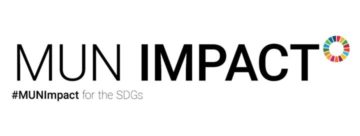The Decade of Action is marked by many great challenges. With a close deadline of 2030 to solve all of the Sustainable Development Goals (SDGs), society must question whether our approaches towards them are inherently flawed in their ability to tackle these complex challenges. On July 23rd, university students, Don Sandev Ferdinando and Sanskriti Tandon pondered this question in a thought-provoking presentation about the insufficiencies of our implementation of the SDGs, breaking it down into 3 key reasons.
1. Trade-Offs
Importance or urgency was never a factor when choosing the 17 Sustainable Development Goals. “The idea is that we try to push the bar along for all 17 in whatever they do,” Ferdinando states in the workshop. In fact, none of the SDGs must be prioritized more than the other. So, in what way did we go wrong? The current capabilities of our modern society create increased difficulties which utilize solving separate goals and targets based on ease. Within SDG 2; zero hunger, target 3 calls for increased agricultural productivity, while target 4 calls to ensure sustainable food systems. Ferdinando reveals that,“The trade off comes in the fact that we’re not producing food in a sustainable way.” Even SDGs such as 13; climate action and 11; sustainable cities, oppose each other as our society currently cannot create cities without using a huge amount of resources and energy. “You’re achieving 11, but at the same time you’re pushing 13 down so far, ” Tandon states.
Contradiction creates priorities which introduce the possibilities of change for one SDG, but massive damage for others. These trade-offs limit the potential of the SDGs by clouding the collective purpose of them all.
2. Loopholes
Post-Soviet Russia in the 1990s was an era defined by fragility. Many industries left the country and their GDP fell about 50% after the event. Reliance on fossil fuels reduced as part of this occurrence. Now, in part of its commitment to SDG 13, Russia agreed to reduce its greenhouse gas emissions to 30% less than it’s initial post-Soviet Republic consumption rate. Not only were they able to adapt to this standard, they went below it, creating a loophole.
A loophole is the personification of immediate action without follow through. This creates a society of exemption and no responsibility. In the presentation, Tandon mentioned that,“The SDGs are completely voluntary. There is nothing binding you to holding yourself accountable.” With this loophole Russia was able to increase their use of fossil fuels without any serious consequences, in turn becoming critically insufficient in the grander scheme of climate action. “Though they may have resources they are acting in a very short term manner…looking at the repercussions in their own countries,” Tandon suggests, “Right now what we need is a more global approach,” Loopholes create no accountability, and without accountability, goals can be lost.
3. Societal Cooperation
In a broader sense, society can be determined by 3 key stakeholders; the government, the NGOs, and non-state actors. Each role brings about different levels and methods to making an impact, addressing different needs of citizens. Often, government bodies have wide scale impact, but fail to recognize the needs of the individual. “As a person living in a street, you know what goes well and what goes wrong,” Tandon states “but as a government bureaucracy you don’t necessarily know and understand what that person might need.” NGOs and non-state actors are equipped to specifically address local needs, but fall short on having a wide impact due to a lack of resources.
“We need governments and NGOs in the same room,” Ferdinando recommends. There are few formal dialogues that occur between these sectors of the world. Even when they interact, they’re still separated by their differing priorities. This distinction often prevents real exchange from occurring. Combining the strengths of all 3 sectors create the potential of having transformative change in the fight for 2030.
Both Tandon and Ferdinando believe in the mission of the SDGs. “The framework works wonderfully,” Tandon mentions, “but the solutions that were implemented are not in the capacity that will allow us to always achieve the 2030 vision.” Non-state actors, NGOs, and government bodies must come together simultaneously eradicating trade offs and eventually collectively deciding to eliminate loopholes. Covid-19 has made a fierce attempt to pause our efforts towards progressing the SDGs. More pronounced than ever is the greater need for world collaboration, acknowledging all facets of society in working towards actual sustainable solutions.
